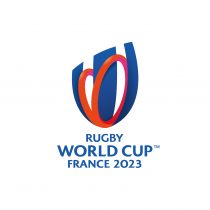Stats review - what do the figures reveal about the eight quarter-finalists?
- 3155

Frugal France take on the error-prone Springboks, while England and Fiji promise a clash of two styles. Can Argentina break the wall of Welsh defence, and will Ireland make history against the free-running All Blacks?
Wales v Argentina, Stade de Marseille
Wales take on Argentina in the first of our quarter-finals after the former swept Pool C and the latter got through a stern test against Japan in their final outing of the group stage to finish second in Pool D.
There is one area of this head to head where the stats may surprise a few: the set-piece. Of the eight quarter-finalists, the team with the best scrum success is Wales (98%), while traditional set-piece powerhouse Argentina have the worst (80%).
However, a lot of what these teams have brought to the tournament so far is less surprising. Of the eight teams to qualify for the knockouts, Argentina play with the quickest ruck speed at 3.37s, while Wales sit in last place with an average ruck speed of 5.11s. Wales have kicked the ball away a lot as well; an average of 30.8 kicks in play per game putting them second only behind England.
So Wales are happy to slow the ball down and play the territorial game, but what can Argentina bring on the counter-attack? The Pumas are second in the charts for defenders beaten per game (32.5) but they will have to do well to penetrate the Welsh wall in Marseille. Not only have Wales averaged the most tackles per game of the final eight with 166.8 - 42 more per game than the next best - but they have managed the best tackle success (88%) as well, which shows how much they trust their process.
"I watch Wales now and they have their DNA back,” former Wales centre Jamie Roberts said on the Official Rugby World Cup 2023 podcast. “They have some wonderful players but they are playing together, with a purpose, that pressure game. They are up there with the top sides in the world with how they pressure sides."
One thing to be said is that Argentina’s two top players for defenders beaten is winger Mateo Carreras (17) and prop Thomas Gallo (16), which shows that their threats come from everywhere. If they’re able to be the unstoppable forces that meets Wales’ immovable object on Saturday, this quarter-final will go down to the wire.
“Wales is going to come to try and do their thing, exert that pressure on to us,” Argentina assistant coach Juan Martín Fernández Lobbe said. “They are very identified with Warren Gatland's philosophy of putting pressure to the opposition and being a combative team.
“We have to play an intense kicking game, and when given the opportunity have a firing attack. It sounds simple but this requires a lot of work.”
Ireland v New Zealand, Stade de France
It’s the three-time champions taking on a team that’s never won at this stage of the competition, but for once Ireland appear to be peaking at exactly the right time in this competition.
New Zealand haven’t changed the way they play. They average the second-most carries of the teams in the top eight (134.8) as well as the most metres (752.5) and line breaks (16.0), and have beaten the most defenders on average per game (39.0). They also have the second-fastest ruck speed (3.43s) and the highest percent of plays more than 30 metres away from their previous ruck (14%). They like to play fast, and they like to play with width.
Ireland won’t have it all their way in the set piece, either. Andy Farrell’s side have won the second-fewest scrums on average (5.3) for a success rate of (90%), while their line out success rate of 81 per cent - they are averaging three line outs lost per game - will raise a few eyebrows. Conversely, New Zealand have the best line out success (98%) of any team in the quarters, losing just one line out throughout the competition so far.
With that said, Ireland are the number one team in the world for a reason. Firstly, they play in the right areas; they have the most red-zone entries (15.3) of all the teams, as well as the highest ratio of their possessions ending up in the opposition 22 (33%). They don’t kick away possession very much, either, doing so on average 23.3 times per game, trusting themselves to make their way into the opposition half with ball in play.
Two areas that give Ireland that trust is the fact that they win on average the most turnovers per game of the top eight (5.3) and the fact that they average less than ten penalties per game overall (9.3). Such good discipline and the ability to win the ball back on the rare occasions they don’t have it already is what makes this Irish side so tough to break down.
“It has been said before but I think this team understands how important defence is to the overall success of the team,” defence coach Simon Easterby said. “We work incredibly hard on being disciplined and not giving sides any access.
“You can sense the feeling of excitement when the opposition have the ball. There is a chance for us to put a stop to their attack and take energy away from them.”
England v Fiji, Stade de Marseille
England know how they want to play and they’re sticking with it. They average 33.8 kicks in play per game which is the most of any of the eight teams, and that in turn gives them the highest percent of possession kicked away (68%). Given the amount they kick, they therefore are lacking in most areas of attacking play.
They have made the second-fewest carries (108.8) for the second-fewest metres made (461.3), they rank sixth for defenders beaten (22.5) and are bottom of the pile for offloads (5.8).
However, George Ford showed in England’s first game against Argentina that you don’t need to be near the opposition try line to score points. On top of that they have a solid scrum which is operating at 95 per cent, which puts them second in that department, and their kicking game still equates to ranking second for positive outcomes of their possessions (74%). While their game plan may not entertain the English fans all that much, it’s brought the team success and therefore they’re unlikely to change that formula.
Conversely, and to the surprise of absolutely nobody, Fiji are running with the ball a lot. They average the most carries per game (139.5), the second-most offloads (11.3) and third-most metres made (570.5). One area that is a bit of a shock, though, is the fact that they are second from bottom for line breaks, with just five per game on average.
However, they’ve also shown that their game has evolved. They’ve won the most turnovers on average (8.0), with a high proportion coming from the breakdown. They also play with good discipline, conceding the second-fewest penalties (8.8), and their scrum success (92%) is only just behind that of England.
"The quality behind the [Fiji] scrum puts the fear of god into any Test side,” Welshman Roberts said. “How do you prepare against that in the week? Defensively you are facing Fiji scrums, whether they are in your own half or in their own 22, the capability of the strike runners is absolutely frightening.”
In boxing they say that styles make fights, and this game has all the elements to test that theory on a rugby pitch.
France v South Africa, Stade de France
There’s an old African proverb that says when elephants fight, it’s the grass that suffers. In the final quarter-final on Sunday, the Stade de France pitch will play host to two big packs of forwards throwing everything at each other for the chance to play in a semi-final.
And while most would expect South Africa to go into the game with a desire to kick, be physical and try assert set-piece dominance, and France would be thought to play with all the freedom they desire, the stats appear to disagree.
In all the teams in the top eight, France have the highest collision dominance relative to their carries (48%), while South Africa are ranked seventh (38%) out of those eight. The Springboks have also lost the most scrums per game of this group for the second worst success rate (81%), and rank only fifth for line out success (89%). France, on the other hand, have the third-best scrum success (94%) and the second-best line out (91%).
Les Bleus are happy to play without the ball as well, kicking it away over 30 times per game on average, and they rank only fifth for carries (119.0 per game) as a result. South Africa, meanwhile, have opted not to kick the ball away, doing so only 20.3 times per game in the group stage.
However, one area where France have been better than South Africa is when they have the ball. The French keep the ball alive better than anyone else, averaging the most offloads (11.8) and the second-most line breaks (10.5), while the Springboks have conceded the joint-most turnovers (17.0) and have the worst positive outcomes of any team (60%), which translates to four out of every 10 possessions ending in error.
Add to the fact France have been the most frugal side when it comes to giving away penalties (8.0), and South Africa average only 1.5 points per game from outside the 22 with the boot, and the defending champions know they will have their work cut out to beat their juggernaut hosts in Paris. Starting, as always, up front.
“They’ve got a very big pack but we’ll be up for it,” Springbok forward Jasper Wiese said. “I don’t think there will be a lack of intensity or anybody standing back for them.
“It’s definitely going to be big but the collisions will be bigger and there will definitely be a few sore bodies.”




























